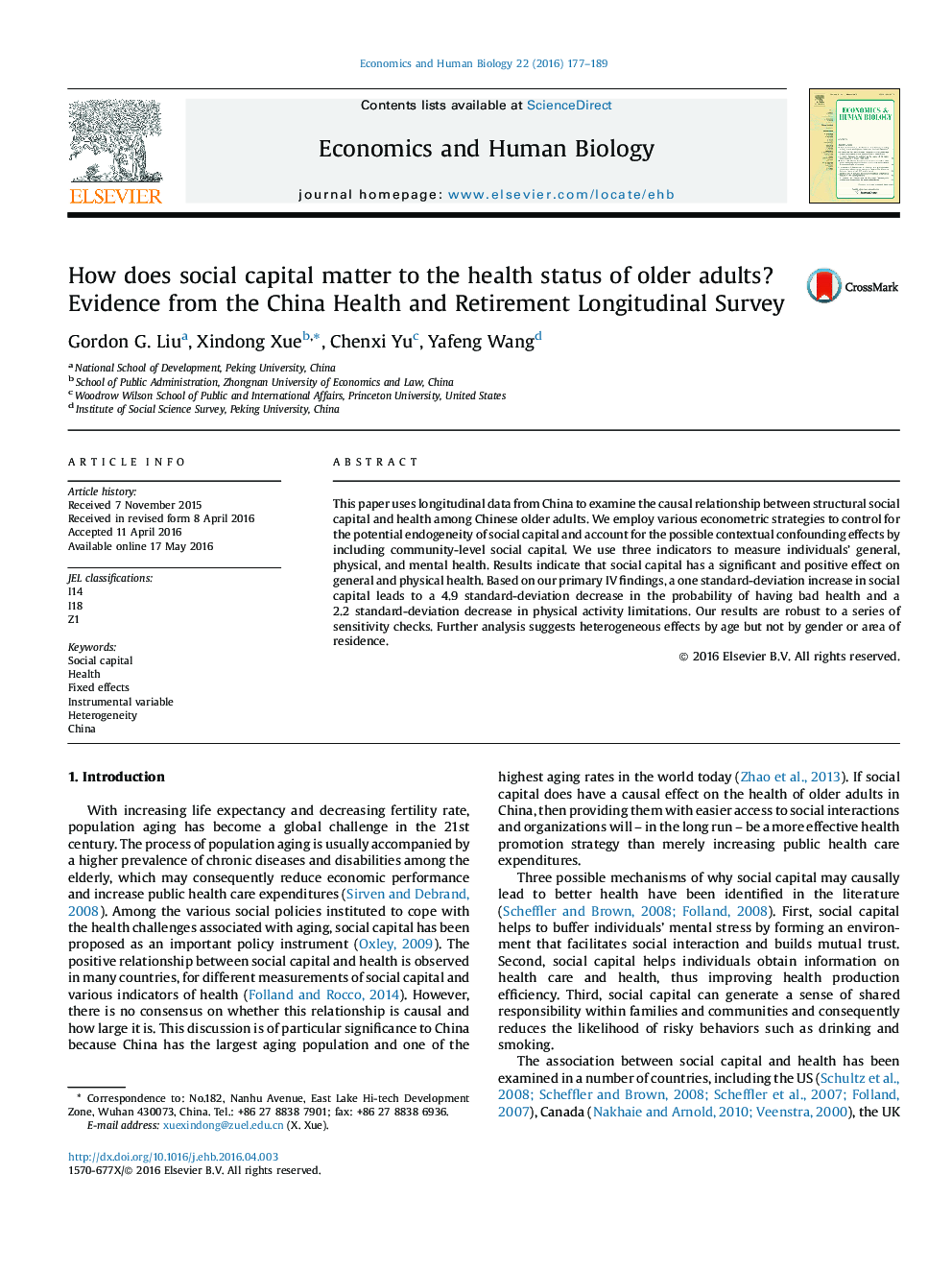| Article ID | Journal | Published Year | Pages | File Type |
|---|---|---|---|---|
| 5056896 | Economics & Human Biology | 2016 | 13 Pages |
â¢We examine the causal effect of structural social capital on health among Chinese older adults.â¢We use three indicators to measure general, physical, and mental health.â¢FE and IV estimates show that social capital has a significant and positive effect on general and physical health but not on mental health.â¢The effect of social capital on physical health tends to be stronger for older-old adults (aged 60 or above).
This paper uses longitudinal data from China to examine the causal relationship between structural social capital and health among Chinese older adults. We employ various econometric strategies to control for the potential endogeneity of social capital and account for the possible contextual confounding effects by including community-level social capital. We use three indicators to measure individuals' general, physical, and mental health. Results indicate that social capital has a significant and positive effect on general and physical health. Based on our primary IV findings, a one standard-deviation increase in social capital leads to a 4.9 standard-deviation decrease in the probability of having bad health and a 2.2 standard-deviation decrease in physical activity limitations. Our results are robust to a series of sensitivity checks. Further analysis suggests heterogeneous effects by age but not by gender or area of residence.
